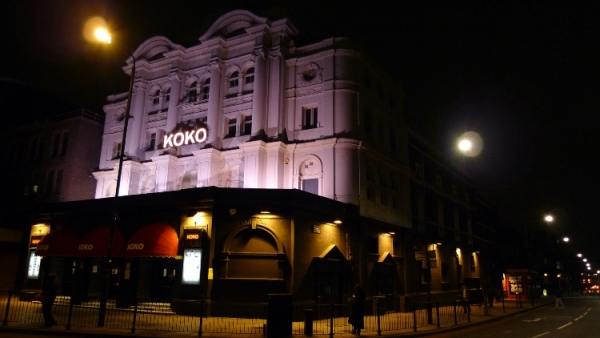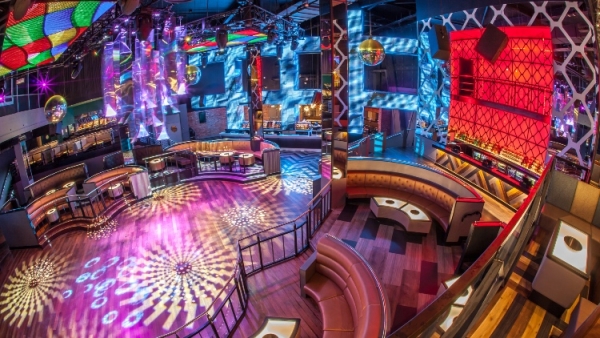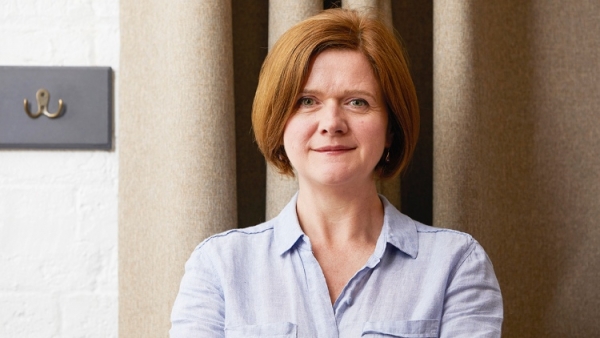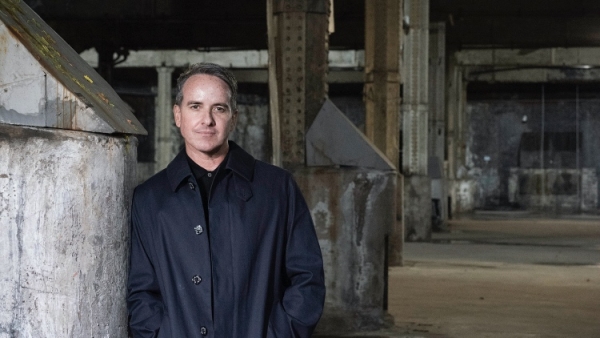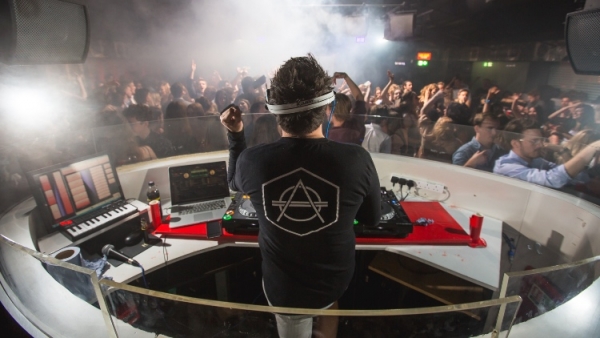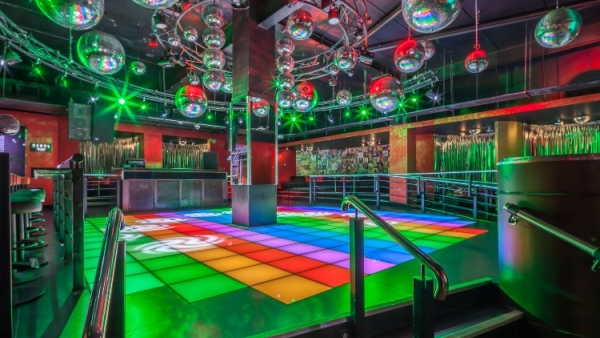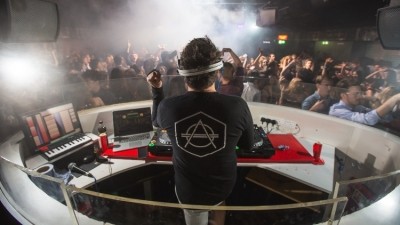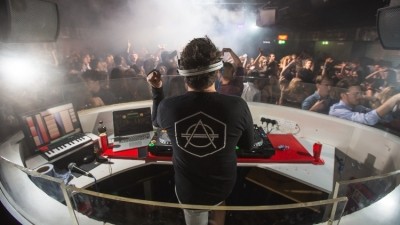Analysis
Night clubs 'unfortunate, unnoticed casualties' of coronavirus
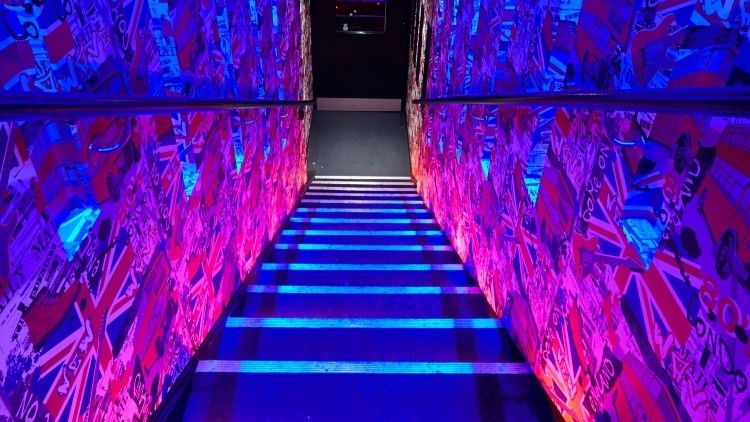
News that Europe’s largest late-night operator, the Deltic Group, launched an “accelerated merger and acquisition process” in a bid to secure the company’s long-term future was, in November, the latest in a string of hard-luck stories for hospitality – and more specifically the night club sector.
It followed the operator of 53 Pryzm and Eden sites announcing plans to cut 10% of its 4,000-strong workforce, while 23-year-old, 1,550-capacity, Cambridgeshire venue the Solstice became one of many high-profile victims of Covid-19 at around the same time.
Others have been fortunate enough to benefit from the Government’s £1.57bn Culture Recovery Fund – with London night club Fabric receiving £1.5m, for example – while billionaire Elisabeth Murdoch is bankrolling the restoration of Camden nightspot Koko after it was ravaged by fire earlier this year.
Yet while Deltic’s chief executive Peter Marks describes night clubs as the “anchor tenant” of the night out economy for the under 25s, headlines such as those above suggest that these clubland cornerstones are having to scrap to survive.
“Without that anchor tenant, the reason to go out into town is less appealing,” Marks tells The Morning Advertiser (MA).
He adds that, from his experience, the success of clubs and other hospitality venues within a local late-night eco-system are intertwined, and that mass closures could spell trouble for the wider sector.
“One of the reasons our industry all gel well with each other is that we have a symbiotic relationship,” Marks continues.
“The pubs understand that clubs play a role in their success, and likewise we like to work with the pubs because we know if we're the only man standing in a town centre where all the pubs and bars have closed, we can't survive either.”
Hard pushed for public attention
Kate Nicholls of UKHospitality – which represents more than 700 businesses operating around 65,000 venues – describes night clubs as “one of the unfortunate, unnoticed casualties of the pandemic” and that the sector and its Covid symptoms have suffered from “an unmerited lower-profile” than the plight of pubs and restaurants.
“Their inability to open since March has certainly not gone unnoticed by anyone working in the industry, but it has taken a harder push to have gain the merited attentions of Westminster and the public at large,” Nicholls tells The MA.
“Pubs and restaurants have made headlines consistently over the past nine months, but the incredibly serious, potentially existential crisis, facing night clubs doesn’t seem to be penetrating the zeitgeist in the same way.”
These comments come despite night clubs collectively employing an estimated 1.3m people across the UK.
However, data gathered by the Night Time Industries Association (NTIA) before the announcement of lockdown 2.0 found 91% of businesses in the sector don’t believe the Chancellor’s Winter Economy Plan will help them retain their current workforce.
What’s more, campaign group #SaveNightclubs found just 10% of night club operators expected their business to survive longer than four months.
Nicholls adds that night clubs being allowed to die en masse would be a “significant cultural, social and economic tragedy”.
“Clubs are often referred to as the most exciting aspect of hospitality, and for good reason,” she continues. “They are integral, economically, to many towns and city centres, but they are also pivotal to so many people in their younger years.
“They are social centres around which people’s nights out revolve. They are also the places that have helped nurture British musical talent that consistently punches above its weight and influences global culture.
“If the UK’s nightclubs are squeezed out and permitted to become extinct, it is not just the complexion of the hospitality sector that is changed, it is the entirety of British culture.”
Still a place for clubs
Charlie Gilkes, co-founder of the Inception Group – which operates 11 venues across London including eighties themed night club Maggies – believes while there probably isn't demand for as many night clubs as there once was, there remains a place for them that can't be replicated.
"For us, the eighties was obviously the period that we thought really stood out – which is why we've got a club purely dedicated to that – but obviously there's the huge musical influence in house music and huge DJs and bands which started in night clubs, The Beatles initially were playing in night clubs, the Cavern Club in Liverpool, so they've made a huge contribution.
"I definitely think we've seen conceptual clubs really take off, Mahiki with their tiki bar concept and really interesting creative ideas coming through and some refreshing innovative concepts.
“It's certainly a sector that has declined over recent years, there are lot of reasons, dating apps taking off - people go and meet in a bar rather than meeting in a club – but there's certainly still a place for them.”
What’s more, Tom Bott, founder of London-based beer maker Signature Brew – which specialises in band collaboration beers and has launched pours with Mastodon, IDLES, alt-J, Enter Shikari and Sports Team among others – believes night clubs are in an "awful and precarious position".
"From our perspective as a brewery so synonymously linked with music, it's often where great music is enjoyed,” Bott explains. “All different types. You could go to a rock night, a rave, but it's usually the night clubs that host these events and if it's not a band on stage the next best thing is going to a night club and enjoying some loud music with your friends.
“It's the part night clubs have played in British music, one of the best music industries in the world. They're massively important.”
10pm curfew ‘a luxury’
Greater Manchester’s night-time economy adviser, Sacha Lord, predicts that the impact of venue closures as a result of the ongoing pandemic will be broad and “substantial”.
"I was really lucky enough that when I was in sixth form is when Manchester was classed as 'Madchester',” he tells The MA “Factory Records, Stone Roses, New Order, James, Happy Mondays - they all came out of the Hacienda explosion, which I was grateful to be a part of and experience that movement.
"When I go on holiday and meet someone and they say, 'where are you from?' and you say 'Manchester', immediately you're associated with football and our night-time economy. That's what Manchester's known for. It's absolutely vital.”
For the night czar and Warehouse Project founder, night club culture is “imperative” to British culture and supports a huge ecology which he, like UKHospitality’s Kate Nicholls, believes has been forgotten.
“When the Warehouse Project is on, just for those three months alone – the end of September until 1 January – that brings north of £15m into the city centre in terms of taxis, hotels, outfits, meals and people going to bars first.
“Let's not forget that since March our night clubs, our live music venues, our theatres, have remained shut. Although the curfew is an absolute nightmare, from someone looking at it from the night club or live music industry it's a luxury."
The kids are going to miss out hugely
While Lord acknowledges that the Culture Relief Fund has “most definitely stopped some events from closing”, he believes there’s a sense of inevitability around doomsday forecasts of mass night club closures.
"I think of a night club as a hot, sweaty, dance floor, people shoulder to shoulder, it's very much like the football terraces, it doesn't matter whether you're a student, whether you're unemployed, whether you're a postman, a lawyer, an accountant, everybody's in there for the love of music and to socialise,” he says.
“There is nothing better than being stood on a packed dancefloor when the DJ has got you at a point during the night, you're there with your mates, you can just forget your worries.
“The explosion of the Hacienda, when it happened in the summer of 1988, it was almost from anarchy. Manchester had been through a very grey period, forgotten by the Government, as had Liverpool.
“The north-south divide at the time had never been so wide. I would actually now argue that because of the last few weeks the north-south divide is as wide as it was then. If night clubs close en masse, which I fear they will, then the kids are going to miss out hugely."
Lord’s comments, made before the announcement of lockdown 2.0 by the Prime Minister, came as, according to the Music Venue Trust, capacity in music venues was down to 25% before, with venues operating on just 12.5% of their income.
What’s more, almost two-thirds (61%) of businesses in the night-time economy started making redundancies in the weeks leading up to the second lockdown according to NTIA research, while the late-night body forecasts that in the region 90,000 events industry jobs will be cut without urgent support.
New campaign group #SaveNightclubs has also predicted that four in five (81%) night clubs will be shut by Christmas unless the Government intervenes.
Lord adds that the toll of venue closures on the mental health of hospitality operators is a huge concern.
The Licensed Trade Charity recently revealed that the volume of calls to its helpline between January and September 2020 was 164% higher than that seen in 2019 amid the ongoing Covid-19 pandemic, while its web traffic has risen by 286% year-on-year.
“Before the Warehouse Project I owned a venue between 2000 and 2006 called Sankeys Soap, which was a night club,” he tells The MA. I've been thinking the last few weeks, if had still owned Sankeys Soap it would have finished me. I could not have reopened it – the rent, the bills it would be the absolute end of the business.
“I know many operators who are just going to shut the doors and they're shutting it not just for financial reasons, but more importantly for their mental health - because it is absolutely shot at the moment.
“People are at tipping point – we saw a promoter from Birmingham, Josh Wilson, took his own life. This is not just about money anymore; it literally is about lives."
‘Very sad’ world without night clubs
Operators across the night club sector argue that the mass closure of late night venues will have huge repercussions for future generations.
"Let's face it, most people start their proper going out life by going into clubs,” Deltic’s Marks explains. “They go to gigs, they'll go to night clubs, and then, when they've got a bit more money in their pocket, go to festivals. It's the rites of passage to your going out life and it's enormously important.
“Yes, you'll grow out of them, maybe in your mid-twenties largely from a regular going out point of view you'll start going to pubs and restaurants, but nearly everybody that ends up with a social life that includes going for a drink and socialising with friends in that environment used to go clubbing at some stage.”
Signature Brew’s Bott fears that the next generation will be deprived of the experiences his generation has enjoyed should the Government fail to act to protect the night club sector.
“Night clubs are the place you can go and figure out who you are as a youngster as you just start to earn your independence,” he explains. “You can go and find the type of music you want; you can go and find the type of people you want to hang out with and that'll be gone. The generation following who don't have that will be robbed of that experience, which is sad."
Somewhat echoing Bott, Inception Group’s Gilkes describes a post-pandemic world without night clubs as “very sad”.
“Sometimes for the people in power it's so long ago that they went to a night club so it's not something they relate to as much. It's a large employer, it's an important part culturally of society and something we need to protect.
"Night clubs and demand for night clubs will come back. People love to be able to dance and I think the thought of people growing up without ever being able to go to a night club is a sad reality.
“We've got our night club Maggie's and we've been inundated with requests for people obviously wondering when we're going to reopen – that's the million dollar question, we don't know, it's likely we'll have been shut for over a year by the time we can reopen.”
Come back fighting
However, both Gilkes and night czar Lord predict something of a post-pandemic bounce for the night clubs that remain.
“Once Covid is in the rear-view mirror, people will go back to night clubs more than ever,” Gilkes says. “I think people have missed them.
"A lot of great businesses have started by initially having night clubs and I don't think this is the death of night clubs, I think actually they'll come back even stronger, but it's just trying to ensure they can survive this period.”
Lord adds: “I can tell you that some festivals – big, big festivals, household name festivals – that are on sale at the moment are seeing record ticket sales because people are dying to go out, so there is going to be a positive.
“One thing we know with night club operators, restaurant owners, pub and bar owners, is that they're creative and entrepreneurial so I'm confident they'll come back again fighting."
